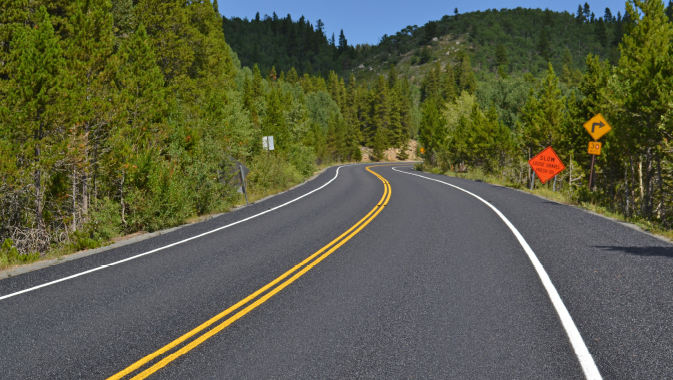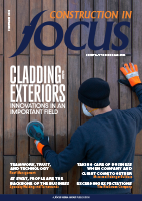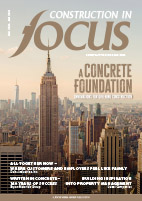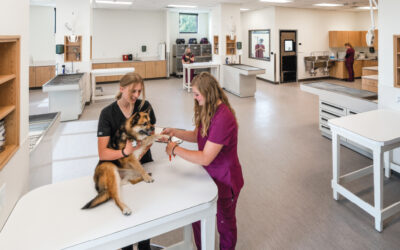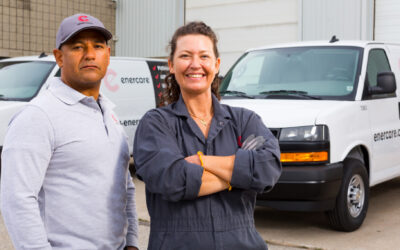Asphalt maintenance company A-1 Chipseal Co. operates throughout the State of Colorado, primarily within the municipalities, where it provides a full suite of sealing and surfacing products. The company aims to be a one-stop shop for all of its customers’ asphalt maintenance needs.
“A lot of companies specialize in one or two techniques,” says Vice President Josh Krueger, “but we do all of them. We’re fixing potholes, paving, infrared patching, filling cracks with crack-seal, doing chip-seals, slurry-seals, seal coats, et cetera. We don’t build roads, but we try to help maintain them by preserving the asphalt.”
Maintaining asphalt is expensive, but A-1 Chipseal Co. has made it its mission to help its customers understand the most cost-effective approach to maximizing their return on that investment. This means extending the life of that asphalt for as long as possible. A-1 Chipseal Co. is a leader in Colorado for product expertise and the quality of its workmanship.
A-1 Chipseal Co. was established in 1994 by husband and wife team Ben and Katherine Vagher, and in the beginning, they focused entirely on chip-seal maintenance. Chip-sealing is a process that involves surfacing an asphalt road with a layer of aggregate. This will help to extend the life of the existing asphalt by protecting it from oxidation and natural wear. The Vaghers identified a need for an asphalt maintenance service in their region and opened the company to fill that gap.
By 2009, the company had grown to be a successful operation and recognized a need for asphalt maintenance products beyond chip-seal. That year, it acquired Rocky Mountain Pavement, a maintenance company specializing in patching, crack-seal, and other products that complemented A-1 Chipseal Co. services.
Today, after twenty-five years in business, the company employs about two hundred people during its busy season and works on roughly eight million square yards of roadway a year. It operates from three locations: its headquarters in Denver, a second branch in Colorado Springs, and a third facility for aggregate crushing in Pueblo, Colorado.
One significant component of A-1 Chipseal Co.’s business is its commitment to using a hard aggregate in its chip- and slurry-seal products. “We have a very good aggregate source in the Denver metro area called Asphalt Paving Company,” says Krueger. “They have a very hard crushed granite. That gives us a much longer life on our chip-seals than normal. I’ve seen seals around the nation, and some of them last four to five years. We see ours ten to twelve years down the road, and they’re still holding up strong. We pride ourselves on a high-quality aggregate and a high-quality product.” Beyond the long life of the product, the granite also takes much longer to fade than other aggregate materials, so roads sealed by the company look new for much longer.
In and around Pueblo, the company was struggling to find an aggregate source that offered the level of quality it wanted to provide. After searching the region, it began to think of unconventional sources and soon identified an opportunity with the local steel mill. The company realized that the steel slag byproduct from that facility could be crushed and screened into a hard aggregate chip-seal material. It made a deal with the steel mill and started crushing material for their Southern Colorado customers.
Repurposing this waste byproduct is just one of the innovative ways that A-1 Chipseal Co. is using recycled material in its operation. The company also recycles all of the excess chip-seal aggregates that remain on the roadway after the sealing process is complete. To do this effectively, the company installed a giant wash bay earlier this year. Usually, excess aggregate is swept off the roadway and discarded after a chip-sealing project. A1 uses a special piece of equipment called an elephant broom to collect this aggregate, transport it to the washing station, and clean it so that it can be reused in later projects.
Five or six times a year, during the summer months, A-1 Chipseal Co. hosts a pavement preservation seminar. Groups of between twenty and twenty-five people are trained on the variety of asphalt maintenance products that exist and how they can be used most effectively.
“It’s typically a lot of city and county people, homeowners associations, business owners,” says Krueger. “They want to understand what products are out there and how they can get the most return on investment for their roadways. The biggest thing we try to teach people is that the right treatment at the right time is going to save them money in the long run. That means using the right product and not just throwing a seal coat down on a roadway that’s going to wear off in two years when you can double the investment and have it last seven or eight years. We’re trying to educate the public.”
A-1 Chipseal Co. works on projects in more than fifty municipalities every year. It works with the Colorado Department of Transportation, private business owners’ parking lot maintenance projects, and a range of other projects throughout the State of Colorado. The company brings its product knowledge and expertise to every job site.
The City and County of Broomfield’s asphalt maintenance program is one that Josh Krueger says exemplifies the value of what A1 teaches at its asphalt preservation seminars. “I think they have one of the best asphalt maintenance programs in the state and maybe the whole country. They do a great job of notifying residents, phasing out streets so that everybody’s impacted the least they can be, but most importantly, they use all the tools at their disposal,” says Krueger. “A lot of cities get behind the curve. They get to a roadway that’s been out there fifteen or twenty years and try to fix the potholes. That’s called reactive maintenance. What Broomfield does a really good job at is pavement preservation.”
The City and County of Broomfield monitors the state of its roadways block by block and begins using maintenance products early on in the lifecycle of the asphalt, usually within the first five or six years. Due to budget concerns, many cities wait until problems occur and then react once issues become too bad to ignore. Broomfield invests approximately $2.5 million a year, but it gets a much better return on that investment.
It is difficult to give exact figures, but as a rough estimate, cities that maintain their roadways reactively tend to spend around six dollars per square yard on maintenance costs, whereas programs like Broomfield’s, that focus on preventative maintenance, spend roughly three dollars per square yard. If a roadway gets so bad that a full rehabilitation is necessary, the costs can balloon to fifteen or more dollars per square yard.
Using the appropriate pavement preservation techniques, when needed, can significantly reduce the overall cost of maintaining a roadway throughout its lifecycle. A-1 Chipseal Co.’s asphalt experts help customers understand how and when to use asphalt preservation products, lowering maintenance costs significantly.
Krueger has spoken twice at the Colorado Asphalt Pavement Association conference, and each time, his central message has been about pavement preservation. Research done by the State of Minnesota led to the state’s recommendation to put maintenance products on roadways almost immediately after paving, within the first year.
“It seems a little extreme, but it locks the asphalt in, protecting it from oxidation, deterioration, and moisture. Why not take care of it right away, instead of waiting? If properly done, you can put these products on over and over. You can seal your roadway every seven to eight years and just continue extending the life of the asphalt. The return on investment is phenomenal compared to waiting until you’re in that cycle of just trying to react.” says Krueger.
One challenge for the company, as for many companies in the Colorado area and beyond, is a shortage of certified commercial truck drivers to transport materials to job sites. Plenty of work is available, and A-1 Chipseal Co. is the first-choice company for many customers throughout the state, so to combat this problem, the company has been paying for some of its employees to take commercial driver’s license classes. It wants to help its employees advance by promoting within.
Another difficulty is the seasonal nature of the business. Chip and slurry-seal products can only be applied from mid-May to mid-October. Fortunately, because A1 has a wide range of products, it can keep its employees working throughout the colder months with products like the crack-seal that can be applied in colder temperatures.
After a quarter-century in business, A-1 Chipseal Co. has built a reputation for expertise and, above all, a quality product. “We do a lot of our work in the metro area, where it’s high traffic,” says Krueger. “Ethically, we believe that if something’s wrong, we have to fix it, and we want to make sure our product looks good and lasts. We stand behind our work.”

